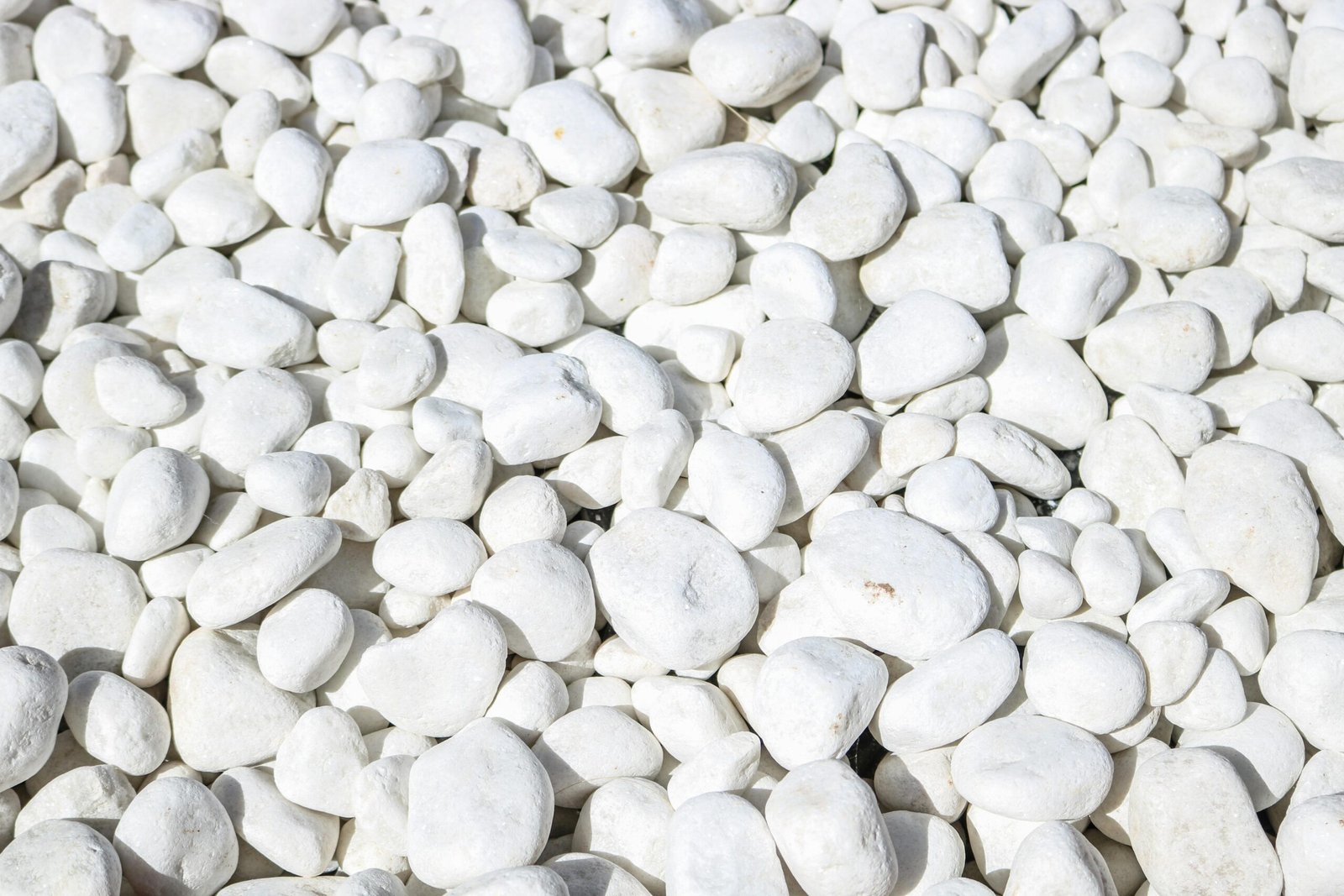Introduction: Why Clean Garden Stones?
How to clean garden stones: Maintaining the longevity and safety of landscaping stones is more important than simply keeping them looking nice. Dirt, filth, moss, and algae can build up over time and cause:
Deterioration: Accumulated grime can erode stone surfaces, leading to cracks and other damage.
Aesthetic Decline: Stains and discoloration can detract from the natural beauty of your garden.
Safety Hazards: Moss and algae can make surfaces slippery, creating potential hazards for slips and falls.
Regular cleaning helps preserve the stones’ natural beauty and extends their lifespan, ensuring that your garden remains an inviting and safe space.
Understanding Different Types of Garden Stones
Before you start cleaning, it’s important to understand the type of stones you’re dealing with, as different stones require different care techniques.
Natural Stones
Because of their durability and beauty, natural stones are highly valued. Typical kinds include of:
Granite: A tough, dense stone that’s highly resistant to staining but can accumulate grime.
Limestone: A porous stone that can absorb stains and is sensitive to acidic cleaners.
Sandstone: Known for its rich colors and textures, but it’s also quite porous and can be prone to staining.
Slate: A durable stone that can be sensitive to harsh chemicals and may develop water spots.
Man-Made Stones
Man-made stones, such as concrete pavers and synthetic stone tiles, mimic natural stones but may have different cleaning requirements:
Concrete: Durable but prone to staining; often requires more intensive cleaning.
Synthetic Stone: Generally easier to clean but can vary in how it responds to different cleaning products.
Preparing for the Cleaning Process
How to clean garden stones: Before you start cleaning, make sure you’re well-prepared to do the work efficiently and safely.
Essential Tools and Materials
Having the right tools and materials is crucial for effective cleaning:
Broom or Leaf Blower: To remove loose debris from the surface.
Stiff-Bristle Brush: Ideal for scrubbing away dirt and stains.
Bucket: For mixing cleaning solutions.
Garden Hose: For rinsing off cleaning solutions.
Pressure Washer: Optional but useful for deep cleaning large areas or stubborn stains.
Cleaning Agents: Specific to the type of stone (more on this in the next section).
Safety Precautions
When using cleaning supplies and equipment, safety must always come first:
Protective Gear: Wear gloves, safety goggles, and a mask to protect against dust, chemicals, and debris.
Test Products: Always test cleaning solutions on a small, inconspicuous area to ensure they don’t damage the stone.
Follow Instructions: Adhere to the manufacturer’s guidelines for any commercial cleaning products used.
Step-by-Step Cleaning Methods for Various Stones
How to clean garden stones: Cleaning methods vary depending on the type of stone. Here is a thorough guide for every kind:
Granite Stones
Granite is one of the most durable and low-maintenance stones but still requires occasional cleaning.
Remove Loose Debris: Sweep or use a leaf blower to clear off leaves and dirt.
Prepare Cleaning Solution: Mix a few drops of mild dish soap with warm water in a bucket.
Scrub the Surface: Use a stiff-bristle brush to gently scrub the granite, focusing on any stains.
Rinse Thoroughly: Use a garden hose to rinse off all soap residues.
Dry the Surface: Wipe down with a clean, dry cloth to prevent water spots.
Limestone Stones
Limestone’s porous nature makes it more susceptible to staining, so it requires a gentle approach.
Clear Debris: Use a broom to sweep off loose dirt.
Mix Cleaning Solution: Combine warm water with a pH-neutral cleaner, avoiding acidic or alkaline solutions.
Gently Scrub: Apply the solution to the limestone and scrub with a soft-bristle brush.
Rinse: Thoroughly rinse with clean water to remove all cleaning agents.
Dry: Pat dry with a soft cloth to avoid water spots.
Sandstone Stones
Sandstone, with its natural textures, needs a careful cleaning approach.
Remove Debris: Sweep or blow off any loose dirt and leaves.
Prepare Cleaning Solution: Mix mild detergent with water.
Scrub Lightly: Apply the solution and scrub gently with a brush to avoid damaging the stone.
Rinse Well: Use a garden hose to rinse the stone thoroughly.
Dry: Dry the sandstone with a towel to prevent water marks.
Slate Stones
Slate is robust but can develop water spots and other blemishes if not cleaned properly.
Sweep the Surface: Clear off any debris with a broom.
Mix Cleaning Solution: Combine warm water with mild dish soap.
Scrub the Slate: Use a brush to clean the surface, paying attention to stains.
Rinse Off: Rinse with clean water using a garden hose.
Dry: Wipe the slate dry with a clean cloth.
Concrete Stones
Concrete is resilient but can be prone to staining and grime buildup.
Clear Debris: Sweep or blow off loose dirt.
Prepare Cleaning Solution: Use a commercial concrete cleaner or a mix of water and mild detergent.
Scrub: Apply the cleaner and scrub with a stiff-bristle brush.
Pressure Wash: For stubborn stains, a pressure washer can be effective. Use it with caution to avoid damage.
Rinse: Rinse thoroughly with water.
Dry: Let the concrete air dry or use a clean cloth to speed up the process.
Natural vs. Commercial Cleaning Solutions
How to clean garden stones: The degree of staining and your personal preferences will determine which cleaning solution is best for you.
Natural Cleaning Solutions
Natural solutions are often environmentally friendly and less harsh on stones:
Vinegar and Water: Effective for general cleaning and light stains. Avoid using on sensitive stones like limestone.
Baking Soda: Useful for scrubbing away grime. Mix with water to form a paste.
Commercial Cleaning Products
Commercial cleaners are designed for tougher stains and larger areas:
Stone-Specific Cleaners: Formulated for different types of stones, ensuring compatibility and effectiveness.
Moss and Algae Removers: Target specific growths that can be challenging to remove with standard cleaners.
Preventative Maintenance Tips
To keep your garden stones looking pristine and minimize cleaning effort:
Seal the Stones: Applying a stone sealer can help protect against stains and moisture absorption.
Regular Cleaning: Perform regular maintenance to prevent buildup. Sweeping or blowing off debris can make cleaning easier.
Address Stains Promptly: Deal with stains as soon as they occur to prevent them from setting in.
Conclusion
How to clean garden stones? Maintaining the beauty and functionality of your garden stones requires a bit of effort but yields great results. By understanding the type of stone you have and using the appropriate cleaning methods and products, you can ensure your outdoor space remains stunning and inviting. Regular cleaning and preventative care will keep your garden stones in top condition, enhancing the overall charm of your garden for years to come. Happy cleaning!
Feel free to reach out if you have more questions or need additional tips on garden stone maintenance!
Frequently Asked Questions
Q:1 Can I use bleach to clean garden stones?
A:1 Bleach is not recommended for most stones as it can cause damage and discoloration. Opt for pH-neutral cleaners instead.
Q:2 How often should I clean my garden stones?
A:2 The frequency depends on the type of stone and environmental factors. Generally, a thorough cleaning once or twice a year is sufficient, with regular maintenance in between.
Q:3 Is it safe to use a power washer on all stones?
A:3 While power washers are effective for many types of stones, they can be too harsh for delicate or porous stones. Use with caution and follow manufacturer recommendations.
Q:4 How can I remove moss and algae from garden stones?
A:4 Use a mixture of water and vinegar or a commercial moss and algae remover. Scrub the affected areas thoroughly and rinse well.
See More



